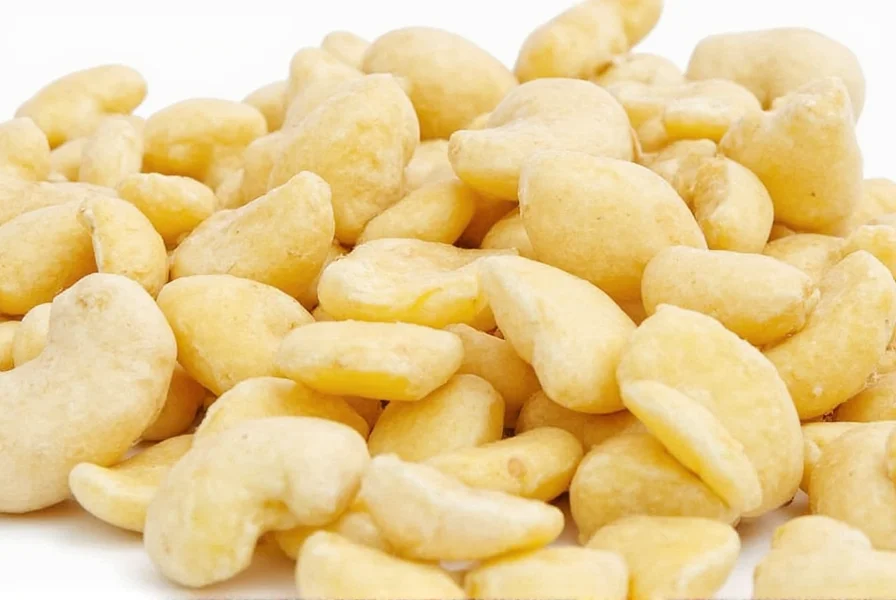Ginger chews have become increasingly popular as a convenient way to enjoy the health benefits of ginger in a palatable, ready-to-consume format. Unlike raw ginger which can be too intense for some palates, these chewable treats deliver ginger's therapeutic properties in a more accessible form. Understanding exactly what ginger chews are good for requires examining both traditional uses and modern scientific evidence supporting their effectiveness.
The Science Behind Ginger Chews
Ginger contains bioactive compounds called gingerols and shogaols that give it powerful medicinal properties. When processed into chews, these compounds remain effective while becoming more palatable. Research published in the Journal of Alternative and Complementary Medicine confirms that ginger supplementation significantly reduces nausea symptoms across multiple contexts. The chewing format allows for gradual release of these compounds, providing sustained relief compared to other consumption methods.

Top Health Benefits of Ginger Chews
Nausea and Motion Sickness Relief
One of the most well-documented uses of ginger chews is for nausea relief. Multiple clinical studies demonstrate ginger's effectiveness for:
- Morning sickness during pregnancy (with physician approval)
- Post-operative nausea
- Chemotherapy-induced nausea
- Sea sickness and motion sickness
- General stomach upset
A comprehensive review in Nutrition Reviews concluded that ginger significantly outperforms placebos for nausea reduction. The convenience of ginger chews makes them particularly valuable for travelers experiencing motion sickness, as they don't require preparation or water to consume.
Digestive Health Support
Ginger chews stimulate digestive enzymes and accelerate gastric emptying, which helps prevent:
- Bloating and gas
- Indigestion after meals
- Nausea related to digestive issues
- Functional dyspepsia symptoms
Research in the World Journal of Gastroenterology shows ginger can reduce digestion time by up to 25%, helping food move more efficiently through the digestive tract. This makes ginger chews particularly beneficial when consumed 20-30 minutes before meals for those with occasional digestive discomfort.
Anti-Inflammatory Properties
The gingerols in ginger chews have potent anti-inflammatory effects that may help with:
- Muscle pain after exercise
- Osteoarthritis discomfort
- General inflammation reduction
- Joint mobility improvement
A study in Arthritis and Rheumatism found that participants who consumed ginger regularly reported significantly less pain and stiffness. While ginger chews shouldn't replace medical treatment for chronic conditions, they can serve as a complementary approach to managing everyday inflammation.
| Benefit | Scientific Support | Recommended Usage |
|---|---|---|
| Nausea relief | Strong clinical evidence | 1-2 chews as needed, up to 4/day |
| Digestive support | Good clinical evidence | 1 chew 20 min before meals |
| Inflammation reduction | Moderate clinical evidence | Regular consumption over weeks |
| Immune support | Preliminary evidence | As part of balanced wellness routine |
Additional Benefits Worth Noting
Beyond the primary uses, ginger chews offer several other potential benefits:
Immune System Support
Ginger contains antioxidants that help combat oxidative stress. While not a replacement for medical treatment, regular consumption may contribute to overall immune health, particularly during cold and flu season. The convenient chew format makes consistent consumption easier than preparing fresh ginger tea.
Sore Throat Relief
The anti-inflammatory properties combined with the soothing action of chewing make ginger chews effective for temporary relief of sore throats. The slow release of ginger compounds provides longer-lasting comfort compared to quick-dissolving remedies.
Headache Management
Preliminary research suggests ginger may help reduce the severity and duration of certain types of headaches, including migraines. While more research is needed, many users report ginger chews help alleviate headache symptoms when taken at the first sign of discomfort.

Ginger Chews vs. Other Ginger Forms
Understanding what ginger chews are good for requires comparing them to other ginger consumption methods:
- Ginger tea - Provides similar benefits but requires preparation; better for immediate, stronger effect
- Ginger capsules - Precise dosing but lacks the soothing chewing action; may cause stomach upset for some
- Fresh ginger - Highest concentration of active compounds but strong taste and potential for mouth irritation
- Ginger chews - Balanced approach with gradual release, palatable taste, and convenience for on-the-go use
For those specifically searching for what ginger chews are good for for nausea during pregnancy or what ginger chews are good for when traveling, the chew format offers distinct advantages in convenience and controlled dosing.
Practical Usage Guidelines
To maximize the benefits of ginger chews:
- Choose products with minimal added sugar when possible
- Look for chews containing at least 50-100mg of ginger per piece
- Consume 20-30 minutes before potential nausea triggers
- Don't exceed recommended daily amounts (typically 2-4 grams of ginger)
- Store in a cool, dry place to maintain potency
Safety Considerations
Ginger chews are generally safe for most adults, but certain precautions apply:
- Pregnant women should consult their healthcare provider before regular use
- Those on blood-thinning medications should discuss ginger consumption with their doctor
- People with gallstone disease should use ginger cautiously
- Excessive consumption may cause heartburn or mouth irritation
The American College of Gastroenterology notes that ginger is generally well-tolerated, with most side effects occurring only with very high doses beyond typical chew recommendations.
Conclusion
Understanding what ginger chews are good for reveals their value as a convenient, effective way to access ginger's therapeutic benefits. From providing natural nausea relief to supporting digestive health and reducing inflammation, these chewable treats offer multiple evidence-backed health applications. While not a replacement for medical treatment, they serve as a valuable complementary approach for managing common discomforts. When selecting ginger chews, look for products with transparent ingredient lists and appropriate ginger concentrations to ensure you're getting the maximum benefits these natural remedies can provide.










 浙公网安备
33010002000092号
浙公网安备
33010002000092号 浙B2-20120091-4
浙B2-20120091-4